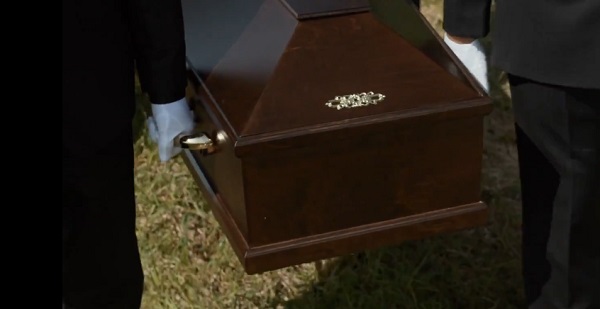Business
Carney government’s proposed tax cut misses the mark—twice

From the Fraser Institute
By Jake Fuss and Grady Munro
On Monday, Parliament returns to the House of Commons, and the new Carney government will now attempt to implement the policy agenda it sold to Canadians in this year’s election. The government’s first priority is to follow through on its promise to cut personal income taxes for Canadians—a change that is long-overdue at the federal level. But the proposed cut misses two important considerations that will limit its effectiveness.
Specifically, the Carney government plans to lower the bottom federal personal income tax (PIT) rate (on income up to $57,375 per year) from 15 per cent to 14 per cent. The Liberal election platform suggests this change would reduce taxes for a dual-income family by up to $825 per year.
To be clear, the government should lower the tax burden on Canadians. When you add up all taxes (income taxes, sales taxes, property taxes, etc.) Canadians pay, the average family spends 43.0 per cent of its income on taxes—more than on food, shelter and clothing combined. In other words, taxes are the largest single expense families face.
While the Carney government’s proposed tax cut could help chip away at the staggering tax burden imposed on Canadians, the design of the tax cut (beyond the fact that this tax cut is paid for by borrowed money) limits its ability to improve overall economic growth and prosperity.
First, the proposed tax cut fails to improve economic incentives for many Canadians.
“Marginal” tax rates refer to the rate imposed on the next dollar of income earned. For example, consider an individual who earns $100 in income and owes $15 in total tax. If they are taxed at 20 cents on the next dollar they earn, they experience a 20 per cent marginal tax rate.
A wealth of research shows that marginal PIT rates influence the behaviour of individuals. Indeed, for decisions about whether to work more hours, take a new job that pays more but has a longer commute, become an entrepreneur, or whether to save your money and invest it, marginal PIT rates directly affect the rewards you receive from those decisions.
If the government lowers marginal tax rates, it provides a greater incentive for individuals to choose to engage more in these types of productive activities. As a result, Canadians and the overall economy will be more prosperous.
But by only reducing the PIT rate for the lowest federal tax bracket, the Carney government will lower marginal tax rates for some Canadians but fail to meaningfully reduce tax rates for high-skilled workers in particular. Many Canadians won’t see better incentives to work, save or invest, and the positive effect on the economy from the tax cut will be limited. Put simply, the narrow scope of the government’s proposed tax cut limits its effectiveness at improving incentives and increasing economic growth.
Second, the proposed tax cut does little to improve the competitiveness of Canada’s tax system.
In today’s interconnected world, countries must compete to attract the people (doctors, engineers, entrepreneurs, scientists, etc.) and investment that help improve economic growth and prosperity. While there are many factors that determine how attractive (or unattractive) a country is, lower and more attractive taxes play a big role.
There are many things that make Canada an attractive place to live and work, but our uncompetitively high income tax rates are not one of them. If you compare combined (federal and provincial) marginal PIT rates in every Canada province with those in every U.S. state, Canadians in every province face higher tax rates than Americans in virtually every state, across a variety of incomes.
For example, in 2023 an individual earning $50,000, $150,000 or $300,000 per year (in Canadian dollars) would face a higher marginal PIT rate in every Canadian province than they would in every U.S. state. And Canada is not just uncompetitive with the United States but with other advanced countries worldwide at the top levels of income.
By only reducing a tax rate for the lowest income bracket, the Carney government’s proposed tax cut does little to make Canada a more attractive destination for doctors, entrepreneurs, scientists or other skilled workers. In fact, the rate cut will likely have little to no effect on the decisions of people to move to (or keep living in) Canada. And do little to improve our living standards and prosperity.
As the Carney government works to deliver on its campaign promise to lower personal income taxes on Canadians, it should consider that the current plan does little to meaningfully improve economic incentives and tax competitiveness. Instead, it should consider more ambitious and broad-based tax cuts that affect incentives.
Business
P.E.I. Moves to Open IRAC Files, Forcing Land Regulator to Publish Reports After The Bureau’s Investigation

Following an exclusive report from The Bureau detailing transparency concerns at Prince Edward Island’s land regulator — and a migration of lawyers from firms that represented the Buddhist land-owning entities the regulator had already probed — the P.E.I. Legislature has passed a new law forcing the Island Regulatory and Appeals Commission (IRAC) to make its land-investigation reports public.
The bill — introduced by Green Party Leader Matt MacFarlane — passed unanimously on Wednesday, CTV News reported. It amends the Lands Protection Act to require IRAC to table final investigation reports and supporting documents in the Legislature within 15 days of completion.
MacFarlane told CTV the reform was necessary because “public trust … is at an all-time low in the system,” adding that “if Islanders can see that work is getting done, that the (LPA) is being properly administered and enforced, that will get some trust rebuilt in this body.”
The Bureau’s report last week underscored that concern, showing how lawyers from Cox & Palmer — the firm representing the Buddhist landholders — steadily moved into senior IRAC positions after the regulator quietly shut down its mandated probe into those same entities. The issue exploded this fall when a Legislative Committee subpoena confirmed that IRAC’s oft-cited 2016–2018 investigation had never produced a final report at all.
There have been reports, including from CBC, that the Buddhist landholders have ties to a Chinese Communist Party entity, which leaders from the group deny.
In the years following IRAC’s cancelled probe into the Buddhist landholders, The Bureau reported, Cox & Palmer’s general counsel and director of land joined IRAC, and the migration of senior former lawyers culminated this spring, with former premier Dennis King appointing his own chief of staff, longtime Cox & Palmer partner Pam Williams, as IRAC chair shortly after the province’s land minister ordered the regulator to reopen a probe into Buddhist landholdings.
The law firm did not respond to questions, while IRAC said it has strong measures in place to guard against any conflicted decision-making.
Reporting on the overall matter, The Bureau wrote that:
“The integrity of the institution has, in effect, become a test of public confidence — or increasingly, of public disbelief. When Minister of Housing, Land and Communities Steven Myers ordered IRAC in February 2025 to release the 2016–2018 report and reopen the investigation, the commission did not comply … Myers later resigned in October 2025. Days afterward, the Legislative Committee on Natural Resources subpoenaed IRAC to produce the report. The commission replied that no formal report had ever been prepared.”
The Bureau’s investigation also showed that the Buddhist entities under review control assets exceeding $480 million, and there is also a planned $185-million campus development in the Town of Three Rivers, citing concerns that such financial power, combined with a revolving door between key law firms, political offices and the regulator, risks undermining confidence in P.E.I.’s land-oversight regime.
Wednesday’s new law converts the expectation for transparency at IRAC, voiced loudly by numerous citizens in this small province of about 170,000, into a statutory obligation.
Housing, Land and Communities Minister Cory Deagle told CTV the government supported the bill: “We do have concerns about some aspects of it, but the main principles of what you’re trying to achieve are a good thing.”
The Bureau is a reader-supported publication.
To receive new posts and support my work, consider becoming a free or paid subscriber.
Business
Mark Carney Seeks to Replace Fiscal Watchdog with Loyal Lapdog

After scathing warnings from interim budget officer Jason Jacques, Liberals move to silence dissent and install a compliant insider with “tact and discretion.”
It’s remarkable, isn’t it? After a decade of gaslighting Canadians about their so-called “fiscally responsible” governance, the Liberal Party, now under the direction of Mark Carney, finally runs into a problem they can’t spin: someone told the truth. Jason Jacques, the interim Parliamentary Budget Officer, was appointed for six months, six months. And within weeks, he did something this government considers a fireable offense: he read the books, looked at the numbers, and spoke plainly. That’s it. His crime? Honesty.
Here’s what he found. First, the deficit. Remember when Trudeau said “the budget will balance itself”? That myth has now mutated into a projected $68.5 billion deficit for 2025–26, up from $51.7 billion the year before. Jacques didn’t just disagree with it. He called it “stupefying,” “shocking,” and, this is the one they hate the most, “unsustainable.” Because if there’s one thing Ottawa elites can’t handle, it’s accountability from someone who doesn’t need a job after this.
But Jacques didn’t stop there. He pointed out that this government has no fiscal anchor. None. Not even a fake one. A fiscal anchor is a target, like a deficit limit or a falling debt-to-GDP ratio—basic stuff for any country pretending to manage its money. Jacques said the Liberals have abandoned even that pretense. In his words, there’s no clear framework. Just blind spending. No roadmap. No compass. No brakes.
And speaking of GDP, here’s the kicker: the debt-to-GDP ratio, which Trudeau once swore would always go down, is now heading up. Jacques projects it rising from 41.7% in 2024–25 to over 43% by 2030–31. And what happens when debt rises and growth slows? You pay more just to service the interest. That’s exactly what Jacques warned. He said the cost of carrying the debt is eating into core government operations. That means fewer services. Higher taxes. Slower growth. The burden gets passed to your children while Mark Carney gives another speech in Zurich about “inclusive capitalism.”
And let’s talk about definitions. Jacques flagged that the Liberals are now muddying the waters on what counts as operating spending versus capital spending. Why does that matter? Because if you redefine the terms, you can claim to be balancing the “operating budget” while secretly racking up long-term debt. It’s accounting gimmickry, a shell game with your tax dollars.
He also pointed to unaccounted spending, about $20 billion a year in campaign promises that haven’t even been formally costed yet. Add that to their multi-decade defense commitments, green subsidies, and inflated federal payroll, and you’re looking at an avalanche of unmodeled liabilities.
And just to make this circus complete, Jacques even criticized the way his own office was filled. The Prime Minister can handpick an interim PBO with zero parliamentary input. No transparency. No debate. Just a quiet appointment, until the appointee grows a spine and tells the public what’s really going on.
Now the Liberals are racing to replace Jacques. Why? Because he said all of this publicly. Because he didn’t play ball. Because his office dared to function as it was intended: independently. They’re looking for someone with “tact and discretion.” That’s what the job listing says. Not independence. Not integrity. Tact. Discretion. In other words: someone who’ll sit down, shut up, and nod politely while Carney and Champagne burn through another $100 billion pretending it’s “investment.”
Let’s be clear: this isn’t just about replacing a bureaucrat. It’s about neutering the last shred of fiscal oversight left in Ottawa. The Parliamentary Budget Officer is supposed to be a firewall between reckless political ambition and your wallet. But in Carney’s Canada, independence is an inconvenience. So now, instead of extending Jacques’ term, something that would preserve continuity and show respect for accountability, the Liberals are shopping for a compliant technocrat. Someone who won’t call a $68.5 billion deficit “stupefying.” Someone who’ll massage the numbers just enough to keep the illusion intact.
They don’t want an economist. They want a courtier. Someone with just enough credentials to fake credibility, and just enough cowardice to keep their mouth shut when the spending blows past every so-called “anchor” they once pretended to respect. That’s the game. Keep the optics clean. Keep the watchdog muzzled. And keep Canadians in the dark while this government drives the country off a fiscal cliff.
But let me say it plainly, thank god someone in this country still believes in accountability. Thank God Jason Jacques stepped into that office and had the guts to tell the truth, not just to Parliament, but to the Canadian people. And thank God Pierre Poilievre has the common sense, the spine, and the clarity to back him. While Mark Carney and his Laurentian elite pals are busy gutting oversight, rewriting the rules, and flooding the economy with borrowed billions, it’s men like Jacques who refuse to play along. He looked at the books and didn’t see “investment”—he saw a ticking fiscal time bomb. And instead of ducking, he sounded the alarm.
Poilievre, to his credit, is standing firmly behind the man. He understands that without a real watchdog, Parliament becomes a stage play, just actors and scripts, no substance. Backing Jacques isn’t just good politics. It’s basic sanity. It’s the minimum standard for anyone who still thinks this country should live within its means, tell the truth about its finances, and respect the people footing the bill.
So while the Liberals scramble to muzzle dissent and hire another smiling yes-man with a resume full of buzzwords and a Rolodex full of Davos invites, at least one opposition leader is saying: No. We need a watchdog, not a lapdog. And in a city full of spineless bureaucrats, that’s not just refreshing—it’s absolutely essential.
-

 Frontier Centre for Public Policy11 hours ago
Frontier Centre for Public Policy11 hours agoRichmond Mayor Warns Property Owners That The Cowichan Case Puts Their Titles At Risk
-

 armed forces23 hours ago
armed forces23 hours agoCanadian veteran says she knows at least 20 service members who were offered euthanasia
-

 Energy2 days ago
Energy2 days agoFor the sake of Confederation, will we be open-minded about pipelines?
-

 Business12 hours ago
Business12 hours agoSluggish homebuilding will have far-reaching effects on Canada’s economy
-

 Business1 day ago
Business1 day agoCarney shrugs off debt problem with more borrowing
-

 Automotive1 day ago
Automotive1 day agoThe high price of green virtue
-

 Addictions1 day ago
Addictions1 day agoCanada is divided on the drug crisis—so are its doctors
-

 National23 hours ago
National23 hours agoConservative bill would increase penalties for attacks on places of worship in Canada















